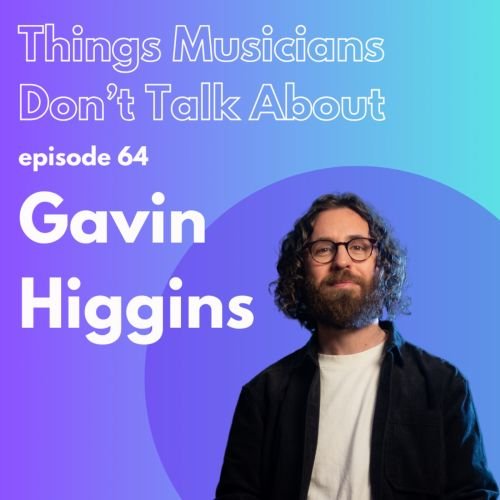Anxiety
Anxiety is a worldwide experience. Still, anxiety can become a problem, or disorder, when it interferes with your life and the ability to function within it. It is one of the most uncomfortable and disabling emotions, though often isn’t taken as seriously as it should be.
Anxiety is an experience especially common amongst musicians. A survey of more than 2,000 self-identified professional musicians across the UK music industry, carried out by researchers at the University of Westminster, showed that seven out of ten had suffered anxiety and panic attacks. This is three times more than the general population.
It is important to know that help is available for musicians struggling with anxiety. If you are also looking to support someone suffering with anxiety within the music profession, this page will try to provide some useful information and advice in how to find the right help.
You are not alone.

Common Anxiety Disorders
Social anxiety disorder
Identified as an extreme fear/panic related to social situations. This can include parties/events/concerts/rehearsals in which speaking to others is required. It can lead to isolation, depression and the inability to realise your longer term goals as a musician.
Generalised anxiety disorder
This means having regular or uncontrollable worries about many different things in your everyday life. Because there are lots of possible symptoms of anxiety, this can be quite a broad diagnosis, meaning that the problems you experience with GAD might be quite different from another person's experiences.
Generalised anxiety disorder can feel like a full-time job. Waking up clouded with anxiety can become people's normality. For artistic people it can cause intense and irrational fears around the worthiness of your work, whether your practice is thorough enough and whether you are working hard enough.
Obsessive-compulsive disorder
Obsessive and intrusive thoughts, often of a dangerous, violent, sexual or bizarre nature, which cause severe distress and are managed through performing either mental or physical compulsions. This is a disorder experienced by many musicians and we are committing to focusing more discussions around OCD and musicians.
Panic disorder
Panic disorder is the experiencing of severe panic attacks without a clear trigger, and subsequent anxiety surrounding the possibility of another attack occurring. Often related to performance anxiety, this can be a common occurrence for some musicians. It can also become worse when living in a city, dealing with noise, traffic and taking public transport. Also experienced in places which are more difficult to 'escape', attacks can be experienced when watching concerts or performances.
Performance anxiety/dissociation
Experienced by most musicians in performance situations, this can range from slight tension or 'excitement' to total and debilitating physical and mental panic. Also linked to dissociation or feeling 'disoriented' on stage, performance anxiety can cause performance to be a terrifying place, often causing memory slips and physical issues that don't occur in practice. Also possible when performing in an orchestral setting, anxiety can be related to 'making a fool of yourself' such as fainting, vomiting or shouting out during a performance. This may also be related to OCD.
Post-traumatic stress disorder (PTSD)
Often related to discrimination and harassment, but also experienced following many stressful and traumatic situations, this disorder is characterised by experiencing flashbacks or nightmares which can feel like you're re-living all the fear and anxiety you experienced at the time of the traumatic events. Involvement with an abusive teacher or past abusive relationship/situation can be triggers for PTSD.
Finding Help
Every anxiety disorder listed above is treatable. It is vitally important that you find the correct help as soon as your symptoms feel overwhelming. Many options are available for musicians seeking psychological therapies, including financial support. Here are some good options to consider if you are struggling:
Your GP
Is a good first port of call, but it they may not always be as helpful as you would like. Don’t give up if you don’t have the best experience through your GP practice. It is common for GP's to prescribe medication, even if you've only been suffering for a short amount of time. This is because they want to help, but have limited resources to offer. You are fully within your right to decline if you feel you'd like to try a psychological therapy first. Be prepared and tell them what you believe you are struggling with- they will often respect your experience and research and will be able to tailor advice accordingly.
You will often be offered 6-8 sessions of cognitive behavioural therapy for anxiety disorders on the NHS. This is a useful place to start for managing anxiety, though can only be a 'plaster', especially if your issues feel more chronic, severe or longer term.
Counselling/Psychotherapy
Counselling differs from CBT, being integrative 'talking therapies' rather than focussing on immediate solutions. Anxiety can often be deeply woven with shame.
With episodes of anxiety and panic, it can be important to feel somewhere you can share the truth of your anxieties with someone outside of your close family and friend circle whilst you ride the wave. There is a huge healing power in being listened to and many therapists will be happy to adjust their fees based on your financial situation.
Counselling service at your university
All UK conservatoires have a student counselling service, offering free short term talking therapy.
Medication for anxiety
If you find your anxiety is not resolving itself through self-help measures, it is essential that you seek further support and consider trying medication. Most commonly prescribed for anxiety disorders are anti-depressants called SSRI's.
Beta-blockers are sometimes used to treat the physical symptoms of anxiety, such as a rapid heartbeat, palpitations and tremors (shaking). But they are not psychiatric drugs so they don't reduce any of the psychological symptoms. They may be helpful in certain situations that trigger your phobia.
If you experience very severe anxiety that is having a significant impact on your day-to-day life, you may be offered a benzodiazepine tranquilliser. But these drugs can cause unpleasant side effects and can become addictive, so your doctor should only prescribe them at a low dose for a short time, to help you through a crisis period
Anxiety UK
therapy for people suffering with anxiety. After signing up for membership (£30 a year for students), you are eligible for fee-reduced therapy. You can choose between cognitive behavioural therapy, compassion focussed therapy, hypnotherapy and talking therapies and they will match you with a therapist nearby, should you want to see someone in-person. This is a great option if you want to be sure that your therapist is certified to work with anxiety sufferers and they may have good insight and experience into your personal situation.
What if I can't afford it?
The good news is that support is available for musicians seeking specialised psychological therapy. BAPAM and Help Musicians UK provide support, both for students and young professionals suffering from mental health issues.
BAPAM + Music Minds Matter
All those who work or study in the performing arts can access BAPAM (British Association for Performing Arts Medicine)’s free, expert clinical assessment service which includes advice from BAPAM’s mental health team. BAPAM is supported by Help Musicians’ Music Minds Matter service, which can provide a grant for short term one-to-one therapy.
The process starts with a free assessment with a BAPAM clinician. If they feel that the short-term help you need isn’t available quickly from the NHS, they will recommend you apply to the Music Minds Matter scheme and lead you through this process.
To arrange an appointment with a BAPAM clinician please call 0207 404 8444.
To read more from this page click here
The Royal Society of Musicians of Great Britain
The Royal Society of Musicians provides vital financial assistance, advice and guidance to those professionally active in the world of music but who are unable to work due to accident, illness or old age.
The charity recognises the precarious nature of freelance life and responds to requests from those in need. It makes grants to professional musicians, whether active or retired, others professionally involved in the world of music, or their families and dependents. The Society’s investment capital and income from annual membership fees, bequests and fundraising generates sufficient cash to cover, among other things, healthcare costs, unexpected costs in old age and funeral expenses, and helps ameliorate hardship arising from being unable to work. Its assistance, delivered in confidence, also runs to counselling, financial advice, rehabilitation or making referrals to specialist practitioners.
Music Support
Music Support is a registered charity founded in April 2016 by people from inside the UK music industry.
Music Support provides help and support for those in or employed by the UK music industry affected by mental ill-health and/or addiction. The charity also facilitates education and learning via workshops and training to musicians and organisations in the music industry so they may be better equipped in the areas of awareness, early intervention and prevention.
Musicians who have struggled with anxiety













































